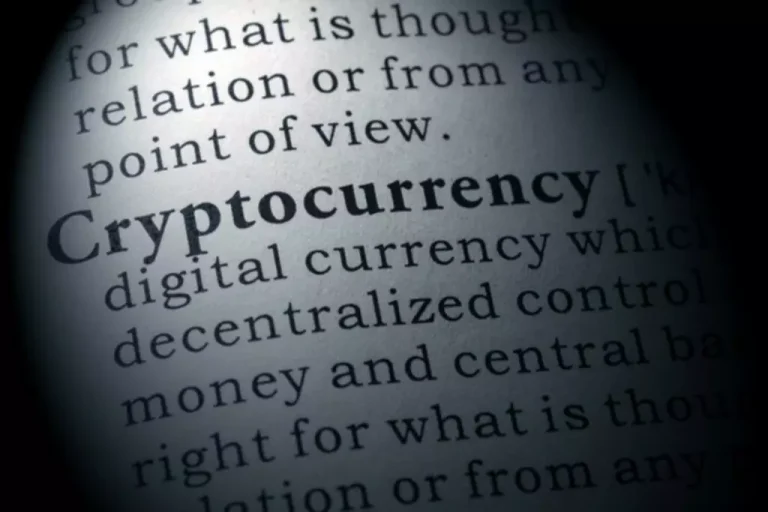Content
Compliance with local laws and regulations under government-established bodies is another factor worth considering when choosing a custodian. There is a possibility that even if the platform is https://www.xcritical.com/ well-reputed and has a good track record, it might not be regulated under your country’s law, making it inaccessible. Because of that reason, it is better to find a platform that complies with the local laws of your country and is licensed there. For a quick overview of crypto asset custody check out our infographic here. The purpose of this website is solely to display information regarding the products and services available on the Crypto.com App. As you move through the due diligence of finding a crypto custodian, don’t forget to consider the legal requirements of the jurisdiction you’re based in.
Safeguarding Your Crypto Assets: An Overview of Custody Solutions for Institutions and Individuals

Partial custody, often called “shared custody,” bridges the gap between independent self-custody Decentralized finance and complete reliance on third-party custodians. Within this framework, users are responsible for securing their assets with a trusted third-party, typically a crypto custody service provider. However, this autonomy comes with limitations — if you lose your private keys, you lose access to your assets without the possibility of recovery. Misplacing private keys — the equivalent of losing a physical wallet — means no recovery option, and funds become irretrievable. When using a crypto custody platform, some service providers charge fees in exchange for providing security to your crypto funds.
Pros and cons of third-party crypto custody
In addition, your funds can be at risk of liquidity crunches, such as the one experienced by the FTX exchange. Therefore, it’s crucial to have a mechanism to secure your digital assets and insurance to protect them. Apart from ensuring your investment security, some custodians provide additional services to individual and institutional clients, for instance, staking to earn interest on digital assets. Analyzing extra offers and comparing them against your plans for the future will help you make a more What Is a Crypto Custody informed decision. If you are not aware of how to keep your hot, hardware, or multi-signature wallet secure, this is where Institutional Custody comes into play. Institutional Custody can be described as a third-party custodian that provides services to store crypto funds safely on behalf of institutional investors at a fixed or subscription cost.

What are cryptocurrency custody solutions?
While some are more straightforward and beginner-friendly than others, you shouldn’t encounter any difficulties with either of the top-rated exchanges. That said, many users believe that KuCoin is one of the simpler exchanges on the current market. Now, let’s talk about how to set up a crypto self-custody wallet by using a specific hardware wallet to illustrate the process, which should be similar to that of other self-custody wallets.
When you store crypto with a third-party custodian, you’ll be expected to complete the same sort of checks to make sure your cryptocurrency was not acquired through illegal means. As cryptocurrency has grown into a new asset class, cryptocurrency custody solutions have become an indispensable part of the crypto ecosystem. In this section, we’re taking a closer look at the top providers of cryptocurrency custody services. As trusted platforms for buying, selling and trading crypto assets, exchanges are already responsible for billions of dollars in trading volume.
- There’s no need to transfer assets from one centralized platform to another.
- Buying, selling, and trading digital currencies was once considered a highly risky, fringe practice, but the industry has become much more mainstream.
- In layman’s terms, a cryptocurrency exchange is a place where you meet and exchange cryptocurrencies with another person.
- While regulation aims to prevent this type of harm, it often falls short, and individual users are stuck with the loss.
- Different types of investors require different types of crypto custody solutions.
- All your holdings are stored with the exchange, the same way money is kept in a checking account at a bank.
- Look for ones that store user’s funds in cold storage instead of hot wallets, and offer multi-signature wallets support.
Crypto custody involves transferring cryptocurrency keys to the custodian, who secures them using enterprise data storage techniques. Most providers will likely use a combination of cold and hot storage to secure cryptocurrency but also provide a way to access it. Here are some of the best crypto wallets for keeping your digital assets safe.
It protects them from being stolen, unauthorized access, and the risks that come with using crypto. Today, the common person can take sole control of their cryptocurrencies (and other digital assets) without requiring the involvement of a third-party. With crypto, there’s no need for the equivalent of a bank — a centralized entity responsible for holding your assets securely. The act of taking control of your coins and tokens is known as cryptocurrency custody. However, choosing the right crypto custody option is essential based on your needs. Self-custody is ideal for users seeking more authority over their assets, usually achieved through a cold wallet.
The opinions and views expressed in any Cryptopedia article are solely those of the author(s) and do not reflect the opinions of Gemini or its management. The information provided on the Site is for informational purposes only, and it does not constitute an endorsement of any of the products and services discussed or investment, financial, or trading advice. A qualified professional should be consulted prior to making financial decisions. Crypto custody is a solution to help address the evolving security needs of cryptocurrency users. As such, it’s an essential topic for traders and users of all experience levels to understand and apply.
The guidelines introduce new requirements for cryptocurrency custody and strengthen oversight ofasset holders. By deploying robust, institutional digital asset custody infrastructure, crypto exchanges can overcome these challenges and unlock new revenue models across digital asset use cases. Let’s dig into a few of the ways exchanges can prepare for this next evolution. When new crypto assets are minted, they’re distributed to crypto addresses according to the rules of the network (that’s when Bitcoin miners or Ethereum validators receive their “rewards” for upholding the network). Every crypto asset in existence, then, is assigned to some crypto address—even if it’s not accessible (like the infamous ETH burn address). That means someone owns, for example, every bitcoin (BTC) or ether (ETH) in existence.
Forcryptocurrency custody, ASIC now requires providers to implement robustsecurity protocols and maintain comprehensive risk management frameworks whendealing with crypto exchanges. These crypto wallets, like Ledger Nano X or SafePal, look somewhat like USB drives that store your cryptocurrency offline. This makes them much more secure against online hacks, but you have to make sure not to lose or damage the device. Choosing how to custody your crypto is an important decision that doesn’t have one right answer. As with traditional stocks, this diversification provides an additional safeguard against failure of any one custody method.
Taking an equal approach to institutional investors and individual clients, Kingdom Trust belongs to the most secure and qualified cryptocurrency custodians. By assisting its clients with reducing risks, the platform helps with compliance, transparency, and accountability, particularly in the case of institutions. Alongside cybersecurity concerns, storing cryptocurrencies securely involves protecting against physical threats like fire, flood, or theft. Given the potential value of digital assets, the consequences of losing access to your crypto holdings can be financially devastating. Therefore, individuals and businesses often turn to third-party crypto custodians to maintain the safety of their digital assets. Crypto custody plays a dual role, serving as a robust shield against security threats while fostering trust within the digital asset ecosystem.
SOC reporting involves an audit of a company’s processes and procedures to judge their success in managing services and protecting user data. The protection of private keys is influenced by the chosen custody method and storage choices. Choosing between these alternatives depends on your individual risk tolerance, usage patterns, and preferences. Public keys, meanwhile, are alphanumeric codes designed to streamline the process of receiving funds from others. They can be likened to a bank account number, email address, or username, as they can be shared with anyone. Coinbase Custody is one of the largest and most well-respected crypto custodians, as demonstrated by its custodial partnership with the U.S.
Additionally, you may have to pay for sending and receiving crypto through your account. These fees can include custody fees, account setup fees, and withdrawal fees. This opened the door for custody giants such as BNY Mellon, Citibank and Fidelity to enter the crypto custody market. Now, whether you choose Ledger Nano X or another hardware wallet, many of these steps will be similar. The aim is to put you in full control of your own crypto assets, securely and efficiently.



